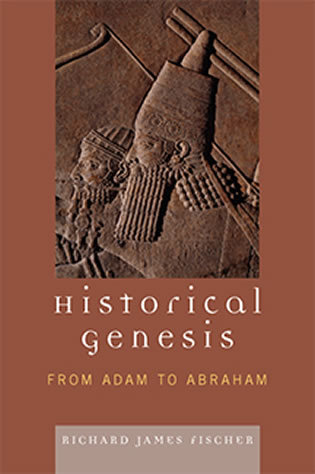Hundreds of years before the Babylon period and the reign of Hammerabi, Sargon of Agade, through bold conquest, united nearly the entire middle east in 2371 BC. And the official language changed from Sumerian to Semite virtually overnight. His grandson, Naram-Sin, continued the Sargonid dynasty.
During the bloody reign of Naram-Sin, independence-minded Sumerian cities were forced into submission to the Accadian king. To guard against future uprisings, Naram-Sin ordered the fortress city walls of Sumerian cities brought down. By complying, the Sumerian city of Ur became dependant on the military strength of the Semite king, and vulnerable to attack. Seizing upon this vulnerability, Gutians and Elamites attacked the city and destroyed it about 2000 BC, slaughtering and enslaving nearly half a million Sumerians.
One of those Semite refugees could have been Abraham who began his journey to Haran about that time.
A Sumerian scribe set down what is now called "Lamentations Over the Destruction of Ur." These are a few lines:
On its walls they lay prostrate. The people groan.
In its lofty gates where they were wont to promenade
dead bodies were lying about;
In its boulevards where the feasts were celebrated
they were viciously attacked ...
The scribe further lamented over the destruction of the temple atop the massive ziggurat that towered over Ur:
The lofty unapproachable mountain, Ekissirgal-
Its righteous house by large axes is devoured ...
Naming the Gutians and Elamites as defilers of the temple, the scribe spat out his hatred against the destroyers who made of it thirty shekels.
To the Sumerians, thirty shekels signified degraded value, something of great weight or value treated as if it had little weight or value. Gilgamesh put on his armour that weighed over 60 minahs, but to the legendary king of Uruk (biblical Erech), it was "as thirty shekels."
What tragic irony that a Sumerian scribe, hundreds of years before one word of the Old Testament was written, would use a term of description contained in our Bible. The life of a slave was set at thirty shekels in Exodus 21:32; and in Matthew 26:15, a traitor named Judas was paid in like measure to betray another King.
Did the pharisees hit on a value that had hidden meaning unknown to them, or was 30 shekels purposely intended as an insult which instead confirmed His great importance? Christ, who had great value, was crucified as if He had no value. Thirty pieces of silver - the price of our priceless Lord.

